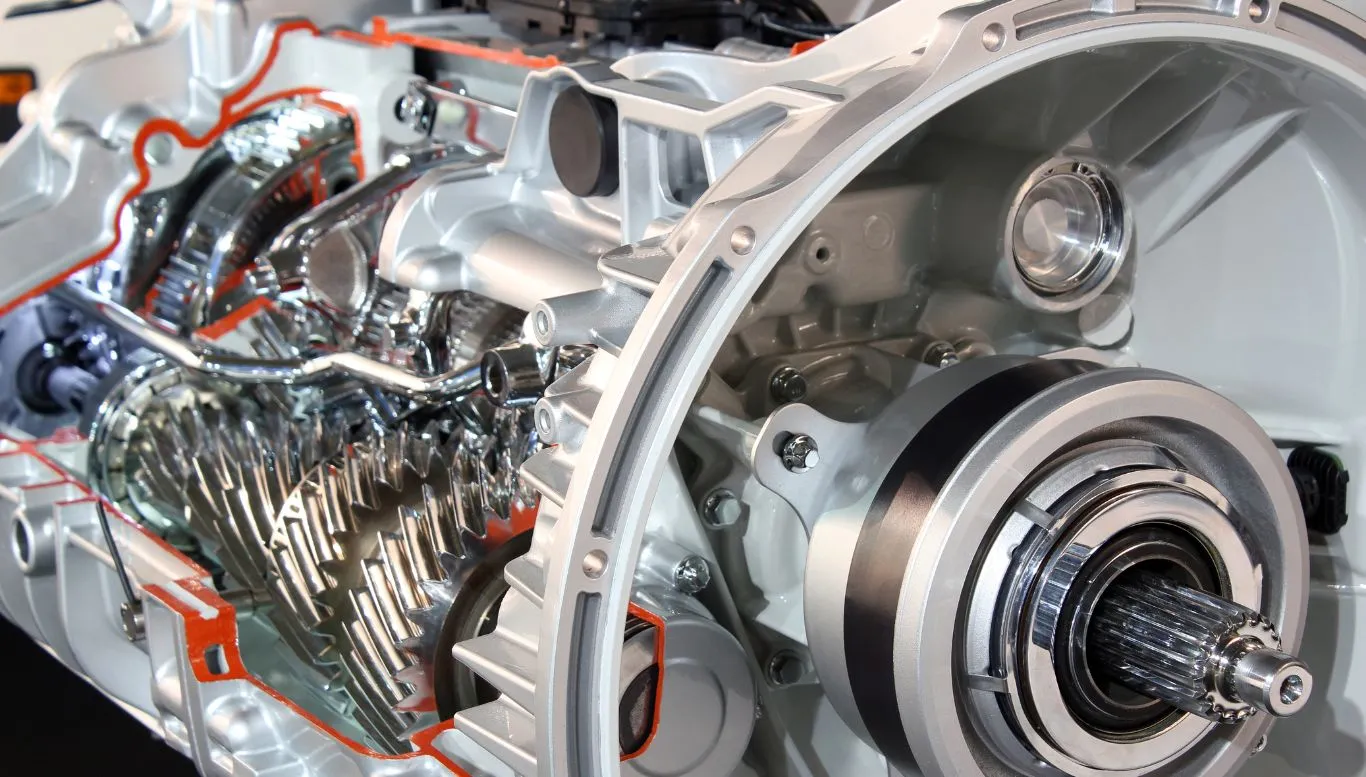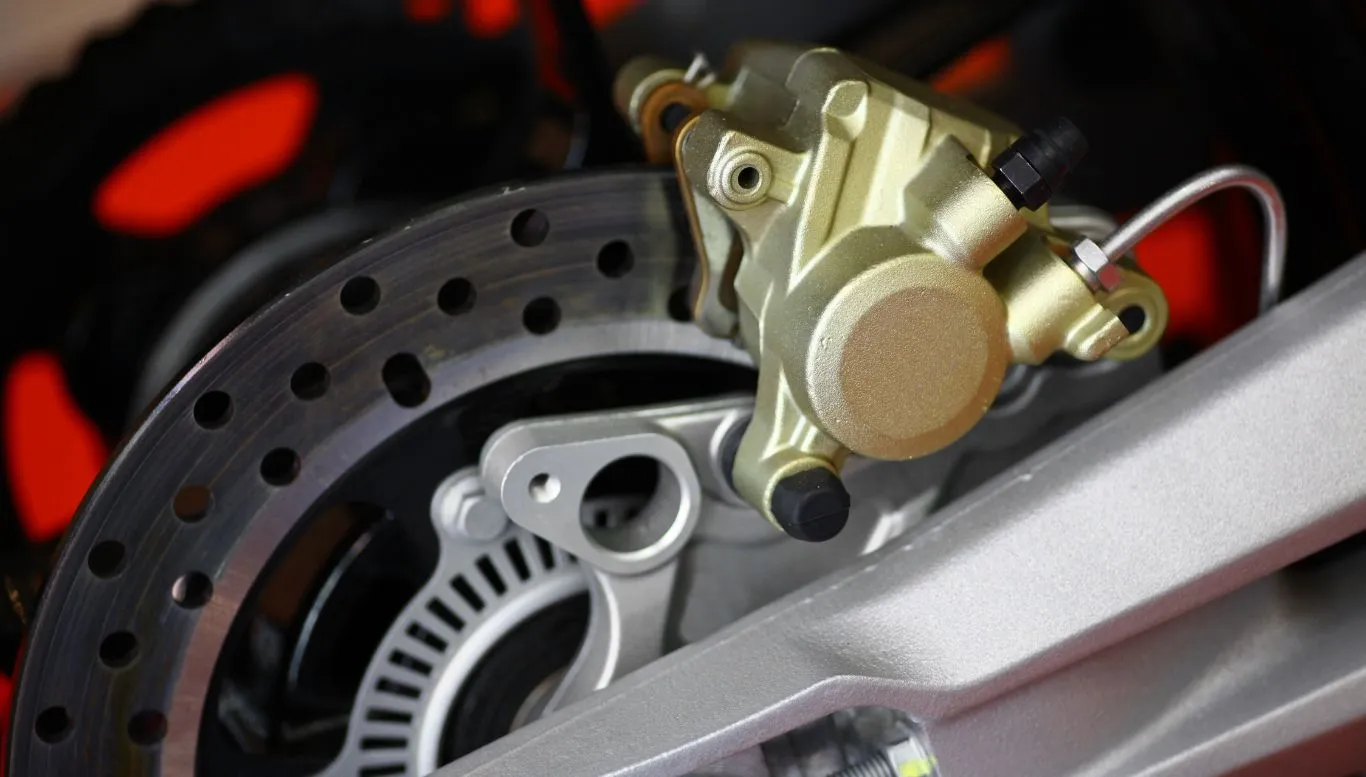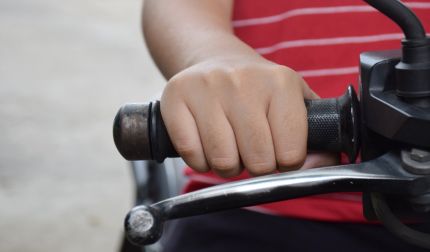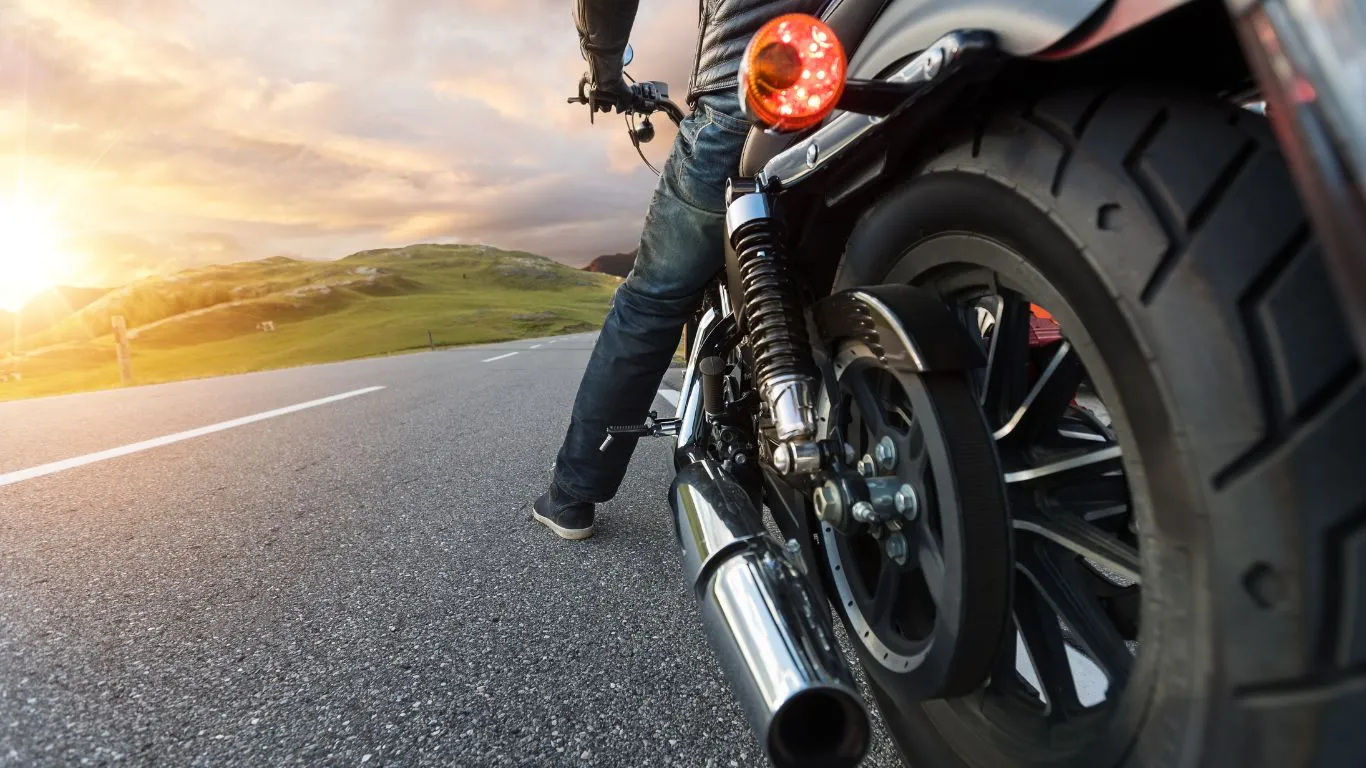Engine overheating causes a major problem for motorcyclists during long rides and also while stuck in traffic for long hours. Some problems can make the engine of your motorcycle get too hot, which can be very annoying.
If you want to avoid getting into difficulty because your motorcycle’s engine overheated, you should read this article, in which I explain the eight most common reasons for that problem.
Engine overheating is considered to be a more common motorcycle issue that gets the best of riders when it’s least expected. Engine overheating can be troublesome, and getting out of a situation caused by overheating can be pricey.
Many riders still get stuck by the situation and may not know exactly why an engine tends to overheat and what can be done about it.
It’s important to know exactly what causes engine overheating, and more importantly, how riders can prevent situations like these from happening.
And that is what we will be discussing in this article
Why Is My Motorcycle Engine Overheating?
There are a number of causes for motorcycle engine overheating, but the most prevalent ones are faulty cooling systems and dirty engine oil. Hard riding, an overly lean engine, smoke, hot weather, and a damaged radiator core are possible additional causes of this problem.
Let’s get into more detail about these potential causes now:
1. Hard riding
Riding too hard can cause an engine to overheat, which is one of the most typical causes.
When the road conditions are appropriate, motorcyclists enjoy the unrivaled adrenaline that comes from shifting through the gears at a high revolutions per minute (RPM).
The engine of a motorbike needs to spin a little bit more and work a little bit harder in order to offer the correct amount of power to the rider when the motorcycle is required to deliver an abundance of power over a length of time.
As a result of this, engines will overheat and the temperatures at which they are designed to operate can sometimes be exceeded.
Overheating of a motorcycle’s engine is a risk if the engine is worked beyond its capabilities.
2. Faulty cooling system
When it comes to cooling systems, there are a lot of different factors that can affect how efficiently they work.
Your motorcycle’s engine may overheat if the radiator fan isn’t working properly, the water pump isn’t working properly, the coolant is old, the radiator cap is worn out, the motorcycle radiator is dusty, or any combination of these factors exist.
3. Bad Engine Oil
Inappropriate engine oil can leak into the combustion chamber and deplete our oil reserves, or it can more quickly evaporate inside the sump if an engine is overheated.
Oil will not be able to adequately cool the engine when the levels are too low, which can prevent overheating. An engine may overheat as a result of the increased friction brought on by a changing oil viscosity.
It can be difficult to deal with motor oil. If you ask any rider for advice on engine oils, you can be sure to get a variety of suggestions for various brands, oil viscosities, and base oil specs.
Even so, in order to get the greatest results, it’s always crucial to adhere to the manufacturer’s suggested oil standards.
Your engine will have to work harder to ensure that oil can adequately lubricate the engine when it is requested to run on oil that is beyond the designed standards.
4. Running too lean
For the best combustion and power, the fuel and air in a motorcycle engine need to be in the right proportions.
As soon as your motorcycle leaves the factory, it might start making this mix of air and fuel on its own. But with repeated use and wear and tear, the ideal air-fuel ratio can drift over time, which can result in subpar engine performance.
Reducing the combustion temperature by running too rich will result in poor power delivery and carbon buildup on the spark plug and engine valves as a trade-off.
Running lean, on the other hand, with too much air in the ratio, can cause pinging noises, insufficient power, and ultimately, too high combustion temperatures.
When the air-fuel ratio of an engine is skewed toward a low mixture, engine overheating is easily generated.
5. Exhaust smoke
To enable optimal combustion and generate power, the motorcycle engine has to have a suitable mix of air and fuel. This ideal blend of air and fuel might be produced by your motorcycle by nature right out of the box.
However, wear and tear from repeated use over time can cause the ideal air-fuel ratio to fall out of balance, which can result in subpar engine performance.
If you run too rich, the combustion temperatures will be lower, but you’ll get less power and build up of carbon on the spark plug and engine valves.
Running lean, on the other hand, with too much air in the ratio, can lead to pinging noises, insufficient power, and eventually, too high combustion temperatures.
When an engine’s air-fuel ratio is skewed toward a lean mixture, overheating of the engine is easily induced.
6. Hot weather
An engine can quickly become overheated in hot conditions. Because of this, engine temperatures can sometimes be lower on the highway than in city traffic.
The constant cold wind keeps your operating temperatures under control by allowing engine heat to disperse into the surroundings.
Because hot air does not readily discharge hot engine temperatures, engines might struggle to cool themselves in extremely hot conditions, especially in commuting and low-speed circumstances.
7. A damaged radiator core
The problem is that the core is made of something that is very fragile, maybe aluminum.
Its advantages make it an ideal material to transfer heat from the radiator into the air flowing over it. It also has exceptional heat sink qualities.
The drawback is that it can be all too simple to bend over the fins on the radiator’s leading edge, obstructing airflow and preventing heat from leaving the coolant.
8. Coolant check
Motorcycles with liquid cooling systems have radiators that move coolant through the engine efficiently.
Effective cooling is made possible by the right amount of coolant and a precise blend of the coolant and distilled water.
How To Prevent Your Motorcycle From Overheating?
1. To prevent hard riding
Try to maintain a lower engine RPM on your motorcycle, and only use the throttle when necessary.
Temperatures are kept within the operating range of your cooling system, which will be able to control temperatures while your engine is spinning at a lower RPM and under less load.
2. To prevent overheating caused by the faulty cooling system
If at all possible, try to keep the RPM of the engine on your motorcycle at a lower setting, and only apply throttle pressure when it is absolutely necessary to do so.
Temperatures are able to be maintained within the operational limits of your cooling system, and your cooling system will be able to keep temperatures at bay when your engine operates at a lower RPM and is asked to perform less work than it normally would.
3. How to prevent overheating caused by bad oil?
The best way to keep your motorcycle’s engine from overheating because of bad oil is to make sure that it is running within the manufacturer’s approved oil specifications and that the engine always has the right amount of oil in it.
This is because checking these two things will ensure that the engine will not overheat.
4. Prevent a lean mixture
You have the option of either adding additional fuel to the mixture or lowering the amount of air that is being let into the system.
This issue may be remedied by simply replacing the air filter and doing a carburetor tune-up on the motorcycles that are equipped with carburetors.
For motorcycles with fuel injection, this problem can be fixed by replacing the air filter and checking the fuel delivery system.
This will bring the ratio of air to fuel back into balance, letting the bike run the way it was meant to.
5. Cool air
When the temperature is high, it is important to always move cool air toward a functioning engine because doing so will provide the greatest benefit.
How To Fix Your Motorcycle From Overheating?
1. Fix overheating caused by hard-driving
If you suspect this is the reason your air-cooled motorcycle engine is overheating, dis-continue doing high revs and let the engine cool off.
If your motorcycle is idling high by itself, you may need to readjust the idle screw on the carburetor so the motorcycle idles between 700-1,000 RPMs. Anything above 1,500 RPMs is excessive.
2. Fix improper oil circulation
Because it lubricates everything that is going on within, the oil functions as an engine coolant on motorcycles with air-cooled lead engines.
Lubrication helps lower the amount of friction that occurs between parts that are contacting each other, which in turn helps reduce the amount of heat that is emitted by the component.
The common problem of a motorcycle engine overheating due to inadequate lubrication and circulation of oil is simple to fix and easy to avoid.
You just need to replace your oil, solve any oil leaks that may be occurring (for my recommendations on how to repair an oil leak on a motorbike, go here), and/or maintain regular oil changes.
3. Getting bugs out of your radiator
To remove the insects from your radiator, you should first soften them with warm soapy water, and then carefully use a soft brush, such as an old toothbrush, to slowly loosen the filth. This should do the trick.
4. The proper mixture of air and fuel
To prevent the motorcycle from overheating, the ratio of air to gasoline that is sucked into each cylinder of the engine must be just right.
Conclusion
The most common reasons for an engine to overheat are things like driving aggressively, using oil that isn’t good for the engine, and other similar things.
In addition to the things that have already been mentioned, you can begin by having your radiator coolant cleansed and your engine oil replaced. When you do this, you give your engine fresh liquids that can handle the heat made by the motorcycle. Additionally, riders should have the radiator fans tested to ensure there are no flaws.
Lastly, making sure you adhere to the basic maintenance schedules provided for your motorcycle can go a long way toward preventing engine overheating. If you take your motorcycle in for service when it’s supposed to, you’ll spare yourself the stress of having to deal with an overheated engine.






